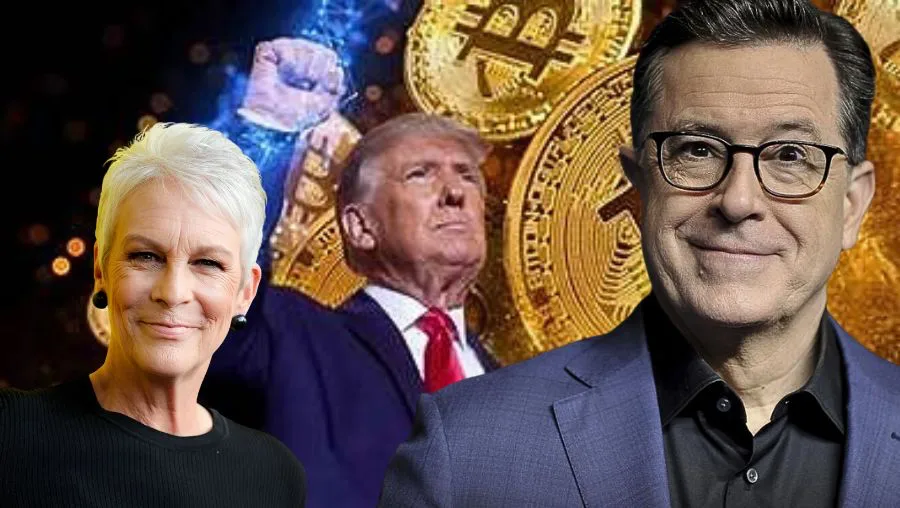It was a day that visibly shifted the balance of power in Washington – and not just in the digital realm. With his usual pathos and a smug smile, Donald Trump signed the "GENIUS Act" on Friday – a law to regulate so-called stablecoins, cryptocurrencies pegged to the dollar or other stable assets. For Trump, it is not only an economic policy coup, but a symbolic alliance with an industry whose leaders he courted during the campaign – also, as he openly admitted, "for the votes." In a telling moment of self-revelation, Trump said during the ceremonial signing in the East Room of the White House, "They named it after me – The GENIUS Act." It was, as so often, a mix of joke, hubris, and cold strategy. "We sign this and then we keep fighting," he added. And indeed: the battle for interpretive sovereignty, control, and economic future is already raging on all levels. The crypto-friendly turn is accompanied by a series of political maneuvers that seem like mosaic pieces of a larger plan. On the same day, it became known that Trump personally approved ordering more marble for the $2.5 billion renovation of the Federal Reserve – a measure he now uses as an example of waste under Jerome Powell, whose removal he has been seeking for years. That the expensive redesigns partly stem from his own instructions, he omits. At the same time, Trump's chronic vein condition was made public – a medical footnote that in other presidencies might have elicited sympathy. Here, it seems more like another chapter in the script of a staging where even leg swelling is translated into political imagery.
More important was the quiet prisoner exchange with Venezuela: ten Americans imprisoned there were released – in exchange for the return of dozens of migrants who had been deported to El Salvador under Trump's harsh migration policy. A diplomatic deal that portrays Nicolás Maduro as a pragmatic negotiator and Trump as the bringer-home of "wrongfully detained" individuals. Secretary of State Marco Rubio proudly declared, "Everyone wrongfully detained is now free." This overlooked the fact that many of the deportees came from Venezuela – and that the humanitarian situation in both countries leaves little room for such barter logic. But the fiercest fronts are currently not between nations, but between Trump and his own society. In California, the federal government was sued for cutting $4 billion in promised funding for the high-speed rail project – a project now expected to cost over $100 billion, three times the original estimate. Transportation Secretary Sean Duffy called it "a stillbirth," while California project chief Ian Choudri warned, "This is not a moment for Washington to walk away from the transportation of the future." For Trump, the case is clear: only "great, big, beautiful things" deserve funding – and that apparently does not include a climate-friendly train. Instead, budgets are being released elsewhere: about $1.3 billion for after-school programs, language courses, and summer education that had previously been blocked. Only after ten Republican senators intervened did the Department of Education announce that part of the frozen funds would still be released to the states. The reasoning: the programs were not "radically left." The very fact that child care must be vetted for ideological approval shows how much Trump's administration now filters even everyday topics like pizza workshops in libraries through ideological grids.
Meanwhile, the debate over Stephen Colbert is raging. CBS has announced it will cancel the popular Late-Night Show in 2025 – officially for financial reasons. But for many critics, including actress Jamie Lee Curtis, it is clear: this is about political cleansing. Colbert had publicly criticized a $16 million deal between Trump and Paramount Global just days earlier. Trump celebrated the cancellation on Truth Social: "I love that Colbert got fired. He had less talent than ratings." And he used the moment to also attack other Late-Night hosts. "Greg Gutfeld is better than all of them combined," he wrote – once again demonstrating how deliberately he wages culture wars while reshaping entire industries. Fittingly, on the same day, the US Department of Agriculture excluded around 70 foreign researchers – many of them from China – from national projects. Senator Tom Cotton had previously introduced a law to bar researchers from "adversarial states" like Cuba, Russia, Iran, or North Korea from US programs. Trump’s administration is now enforcing this – under the pretext of national security, but in effect carrying out a broad exclusion of scientific collaboration. Even in food security, the rule now is: those who do not align with the new national line are out. What remains of this day? A cryptocurrency that is now legal. An infrastructure project that dies. A president who celebrates himself while dismantling opponents, striking deals, and mocking his illness. The new world order is digital, but it speaks the old language of power. Only now, it is no longer printed on paper – but encoded on the blockchain.

Was für ein widerlicher Mensch
Unglaublich, er der GENIUS.
Mit Demenz und Venenschwäche.
„Ich habe die beste Demenz, die Demenz Stadium 9“
Könnte man jetzt auch auf seine Beine ausweiten.
Erstaunlich, dass noch Geld in Richtung Bildung ausgegeben wird. Da hatten ein paar Republikaner mal Eier in der Hose.
Die Medienlandschaft wird sich extrem zum Nachteil entwickeln.
Es knickers bach und nach alle großen Sender ein.
CBS NBC, ABC ……
Was bleibt sind gleichgeschaltete Medien einer Autokratie